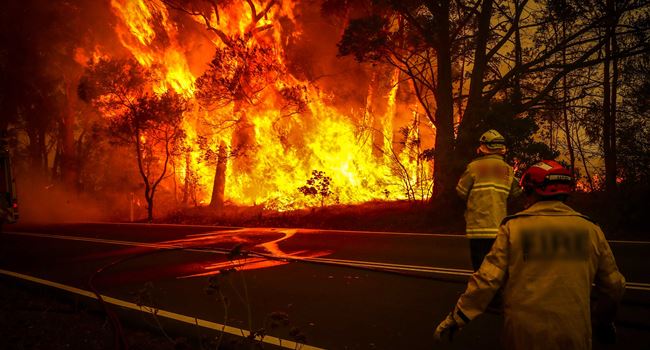News
Abia govt advises residents over heatwave

The Abia State government via the Department of Climate Change of the Ministry of Environment and Urban Renewal on Wednesday registered its concern over the recent climate change resulting in heat waves during the day and at night.
The Ministry noted that the adverse effects of the current situation include dehydration which can lead to fainting, contracting chicken pox, heat rashes and mental stress, skin cancer, meningitis and in the worst case scenario death.
It recalled that the Nigerian Meteorological Agency (NIMET), had advised on how to prepare for change in climatic conditions, and also advised residents to follow the recommendations by the experts in order to check the threat associated with the heat.
READ ALSO: Gunmen kidnap Abia varsity deputy vice-chancellor
NIMET equally advised people to drink more water and stay hydrated, avoid more consumption of alcoholic beverages and caffeinated beverages, reduce intake of food rich in proteins because they increase metabolic activities as fresh foods and fruits are better alternatives, stay indoors between 12 noon and 4:30pm, take cold bath before going to bed at night, and monitor their blood pressure always, among others
Meanwhile, the state Commissioner for Environment, Philemon Ogbonna, in a statement on Wednesday, said: “While the state government is reassuring the people of its commitment to their welfare and security, Abians are reminded that health is wealth and that they should do all they can to live a healthy life.”
Join the conversation
Support Ripples Nigeria, hold up solutions journalism
Balanced, fearless journalism driven by data comes at huge financial costs.
As a media platform, we hold leadership accountable and will not trade the right to press freedom and free speech for a piece of cake.
If you like what we do, and are ready to uphold solutions journalism, kindly donate to the Ripples Nigeria cause.
Your support would help to ensure that citizens and institutions continue to have free access to credible and reliable information for societal development.






















